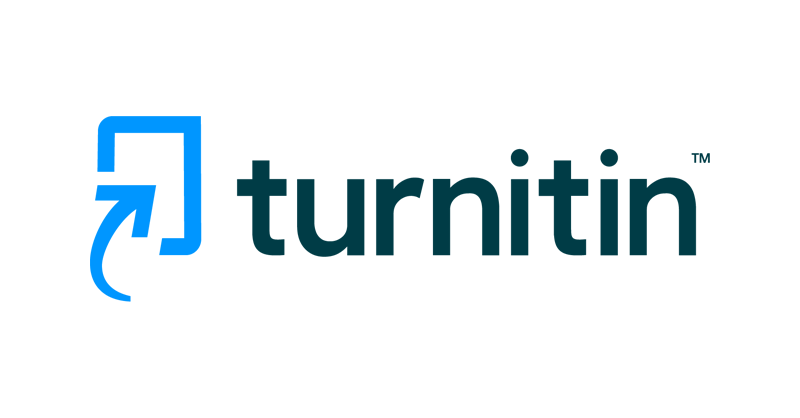PESERTA DIDIK KELAS VIII SMP NEGERI 11 JAYAPURA PADA POKOK BAHASAN GETARAN DAN GELOMBANG
DOI:
https://doi.org/10.31957/pjpe.v1i1.1281Abstract
The aim of this research was to determine the increase, the relationship, and the influence of learning using (Problem Based Learning) PBL models based on experimental method on student learning outcomes. This research was carried out using quantitative approach with experimental research methods. Pre-experimental design was done using one-group pretest-posttest design. The study was conducted in SMP Negeri 11 Jayapura in academic year 2018/1019. The population were 227 students of class VIII. The research samples were VIII G consisted of 30 students. The analysis technique used is N-Gain analysis. Based on research results, it is obtained that there is an increase in learning outcomes indicated by the obtained score which was 0.76. It was included in the high category. Asymp Value. Sig. (2-tailed) = 0,000 <0.05, then Ho is rejected and Ha is accepted, meaning that there is a relationship between PBL models based on experimental method on student learning outcomes. Pearson Correlation value = 0.769 is interpreted to have a strong relationship. The value of R Square = 0.591 means that the influence of the PBL model based on the experimental method on learning outcomes was 59.1%. The sig. value = 0.00 <0.05, then Ho is rejected and Ha is accepted, meaning that there is an influence of PBL model based on experimental method on learning outcomes.
Keywords: PBL model, experimental method, learning outcomes.
Downloads
References
Arief, M. K., Handayani, L., & Dwijananti, P. (2012). Identifikasi Kesulitan Belajar Fisika Pada Siswa RSBI: Studi Kasus Di RSMABI Se Kota Semarang. UPEJ Unnes Physics Education Journal, 1(2).
Candra, E., Kurniawati, I., & Ferdianto, F. (2020). Kemandirian Belajar Siswa SMP Melalui Model Problem Based Learning (PBL). Logika Jurnal Ilmiah Lemlit Unswagati Cirebon, 23(1), 26–30.
Diantari, P., Wiarta, I. W., Negara, I. G. A. O., & Ke, S. P. M. (2014). Pengaruh Model Pembelajaran Problem Based Learning Berbasis Hypnoteaching Terhadap Hasil Belajar Matematika Siswa Kelas V Sd Gugus 1 Kuta Utara. MIMBAR PGSD Undiksha, 2(1).
Handayani, D. (2016). Pengaruh Problem Based Learning (PBL) terhadap Hasil Belajar IPA Siswa Kelas VIII SMPN 1 Teras, Boyolali Semester Genap Tahun Ajaran 2015/2016. Universitas Muhammadiyah Surakarta.
Lestari, M. E. (2012). Pengaruh Metode Resitasi dalam Model Problem Based Instruction (Pbi) Terhadap Pemahaman Konsep Matematika Siswa Kelas X Sma Negeri 1 Rengat Barat Kabupaten Indragiri Hulu. Universitas Islam Negeri Sultan Syarief Kasim Riau.
Lusiyana, L., Pardede, A., & Apriani, H. (2019). Efektifitas Model Pembelajaran PBL (Problem Based Learning) Pada Materi Tata Nama Senyawa Terhadap Hasil Belajar Siswa Kelas X MAN Kota Banjarbaru. Dalton: Jurnal Pendidikan Kimia Dan Ilmu Kimia, 2(2).
Masitah, M., Suhartati, S., & Khairunnisak, C. (2020). Kemampuan Berpikir Kritis Matematis Siswa pada Pembelajaran dengan Model Problem Based Learning di Kelas VII SMP. Jurnal Ilmiah Mahasiswa Pendidikan Matematika, 5(1).
Nurqomariah, N., Gunawan, G., & Sutrio, S. (2017). Pengaruh Model Problem Based Learning dengan Metode Eksperimen Terhadap Hasil Belajar IPA Fisika Siswa Kelas VII SMP Negeri 19 Mataram Tahun Pelajaran 2014/2015. Jurnal Pendidikan Fisika Dan Teknologi, 1(3), 173–179.
Okyranida, I. Y. (2015). Pembelajaran Fisika Problem Based Learning (PBL) Menggunakan Metode Eksperimen dan Metode Proyek Ditinjau dari Kemampuan Berpikir Abstrak dan Kemampuan Berpikir Kreatif pada Materi Cahaya SMP/MTs Kelas VIII. UNS (Sebelas Maret University).
Puri, D. T., Suyanto, S., & Aminatun, T. (2016). Penggunaan Model Problem Based Learning (PBL) pada Pembelajaran Perubahan Lingkungan dan Daur Ulang Limbah untuk Meningkatkan Pengetahuan Konseptual dan Kemampuan Berpikir Kritis pada Kelas X SMA Negeri 1 Gombong. Pend. Biologi-S1, 5(6).
Sari, D. N. (2011). Penerapan model project-based learning untuk meningkatkan aktivitas dan hasil belajar IPA siswa kelas IV SDN Ketawanggede 2 Malang. Penerapan Model Project-Based Learning Untuk Meningkatkan Aktivitas Dan Hasil Belajar IPA Siswa Kelas IV SDN Ketawanggede 2 Malang/Dewi Nofita Sari.
Sawitri, I., Suparmi, S., & Aminah, N. S. (2018). Pembelajaran Fisika Berbasis Problem Based Learning (Pbl) Menggunakan Metode Eksperimen Dan Demonstrasi Ditinjau Dari Kemampuan Berpikir Kritis Terhadap Prestasi Belajar Dan Keterampilan Metakognitif. INKUIRI: Jurnal Pendidikan IPA, 5(2), 79–86.
Wulandari, N. I., Wijayanti, A., & Budhi, W. (2018). Efektivitas Model Pembelajaran Problem Based Learning Terhadap Hasil Belajar Ipa Ditinjau dari Kemampuan Berkomunikasi Siswa. Jurnal Pijar MIPA, 13(1), 51–55.
Yulianingtias, H. P. (2016). Pengaruh Model Problem-Based Learning (PBL) Terhadap Keterampilan Berpikir Kreatif dan Hasil Belajar Siswa Pelajaran IPA Kelas VII SMP Negeri 3 Palu. Mitra Sains, 4(2), 153771.







